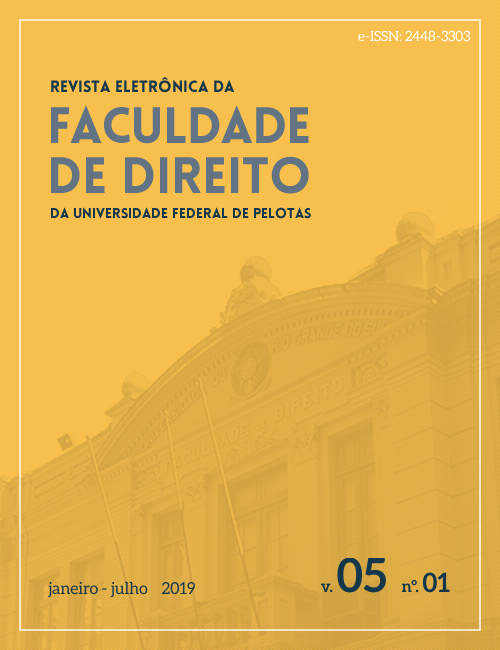Direitos humanos dos trabalhadores e a convenção 187 da OIT: educação para a formação cultural e preventiva face aos riscos de acidentes no trabalho
Resumo
Resumo: O artigo explora acerca do sistema de proteção ao meio ambiente do trabalhador e o quadro promocional para a segurança e saúde no trabalho instituída pela Convenção n.° 187 (OIT, 2006), que, apesar de não ratificada, pode contribuir indiretamente com a Política Nacional de Segurança e Saúde no Trabalho com elementos que possam aprimorar a tutela de proteção do meio ambiente do trabalho no Brasil, onde, ademais, a política nacional é regulada pelo Decreto de n. 7.602 (BRASIL, 2011). Portanto, a pesquisa tem por objetivo mapear e analisar acerca dos principais temas normativos da convenção citada e da correspondente política pública voltada para a melhoria da segurança e da saúde do trabalhador no país, em resposta às necessidades sociais pela instituição de uma cultura de prevenção, tendo como base teórica a teoria dos direitos humanos e fundamentais. Quanto ao problema de pesquisa, será descrever os direitos oriundos da norma citada para a tutela de proteção do meio ambiente do trabalho no Brasil, para a criação de uma cultura educativa preventiva, face aos riscos de acidentes. A hipótese apresentada refere-se à possibilidade de formação de uma cultura de prevenção de acidentes do trabalho por meio de cursos e métodos educativos de segurança e saúde no trabalho mesmo em situações em que a lei é omissa, utilizando-se a Convenção 187 (OIT, 2006) como fonte formal acessória, diante da sua não recepção pelo ordenamento interno até o presente momento. A pesquisa científica terá metodologia da seguinte forma: pura, qualitativa, exploratória, descritiva e bibliográfica, com a análise de legislação, artigos científicos, obras jurídicas e material disponibilizado na Internet.Palavras-chave: Direitos Humanos dos Trabalhadores. Convenção 187 da OIT. Política Nacional de Segurança e Saúde no Trabalho. Educação e Cultura em Segurança e Saúde do Trabalho. Abstract: The article explores the environmental protection system of the worker and the promotional framework for occupational safety and health established by Convention No. 187 (ILO, 2006), which, although not ratified, can contribute indirectly to the National Health and Safety Policy in Working with elements that can improve the protection of the environment of work in Brazil, where, in addition, the National Policy on Safety and Health at Work is regulated by Decree No. 7,602 (BRAZIL, 2011). Therefore, the research aims to map and analyze the main normative themes of the cited convention and the corresponding public policy aimed at improving worker safety and health in the country, in response to social needs by establishing a culture of prevention, based on the theory of human and fundamental rights. Regarding the research problem, it will be to describe the relevance of the protection of the environment of work in Brazil, instituted through the National Occupational Safety and Health Policy, in order to create a preventive educational culture, in view of the risks of accidents job. The hypothesis presented refers to the possibility of creating a culture of prevention of occupational accidents through courses and educational methods of safety and health at work even in situations where law is silent, using Convention No. 187 (ILO, 2006) as a formal accessory source, even though there is no legal obligation to comply with its terms. The scientific research will have methodology as follows: pure, qualitative, exploratory, descriptive and bibliographical, with the analysis of legislation, scientific articles, legal works and material made available on the Internet.Keywords: Human Rights of Worker. ILO Convention No. 187. National Occupational Safety and Health Plan . Education and Culture in Occupational Safety and Health. Sumário: Introdução. 1. Direitos Humanos dos Trabalhadores e as Políticas Públicas no Brasil: Cultura Educacional em Segurança e Saúde no Trabalho. 2. Normas Internas sobre a Proteção do Meio Ambiente do Trabalho e os Direitos Fundamentais. Considerações Finais. Referências.
Publicado
2019-09-01
Seção
Artigos


